Is Lavender Safe for Cats? 7 Astonishing Facts Revealed
As a cat owner, you love spending time with your furry friend. You might wonder, “Is lavender safe for cats?” when considering its use in your home. Lavender is used in essential oils and fresh flowers for its calming effects. But it’s important to know how it affects your cat’s health.
Is lavender safe for your cat? The answer is not simple. Some say it’s good, while others warn of dangers. We’ll share 7 surprising facts to help you decide if lavender is safe for your cat.
Table of Contents
7 Astonishing Facts About Lavender and Cat Safety
Fact 1: Lavender Contains Toxic Compounds That Harm Cats
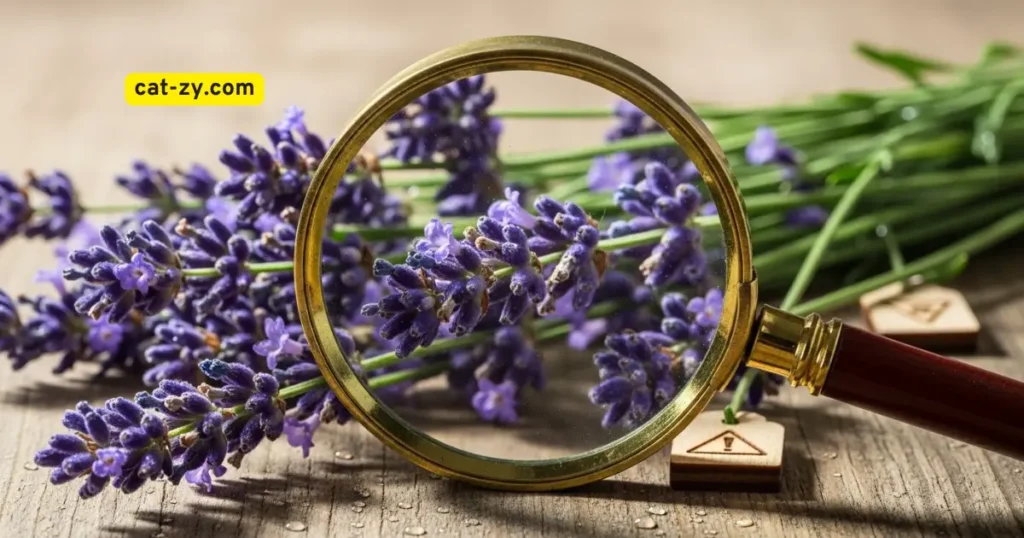
Is lavender safe for cats? The answer lies in its chemical composition. Lavender contains toxic compounds, specifically linalool and linalyl acetate, which can harm cats. These chemicals are naturally present in all parts of the lavender plant and can cause serious health issues for felines. Even a little bit of lavender oil can upset a cat’s sensitive liver, making this seemingly innocent plant a potential threat to your pet’s well-being.
Fact 2: Essential Oils Are More Dangerous Than Dried Lavender
When asking “Is lavender safe for cats?” it’s crucial to understand that essential oils pose a much greater risk than dried lavender. While dried lavender still contains the same potentially harmful compounds like linalool and linalyl acetate, the concentration is significantly lower than in essential oils. Essential oils are highly concentrated extracts that can cause immediate toxicity, while dried lavender typically requires larger amounts to cause serious harm.
Fact 3: Cats Can Develop Allergic Reactions to Lavender
Surprisingly, cats can be allergic to lavender, adding another layer to the question “Is lavender safe for cats?” If your cat itches, sneezes, has trouble breathing, or shows signs of skin irritation after being near lavender, these could be allergic reactions. Unlike humans, who might find lavender soothing, cats’ immune systems can react negatively to lavender’s compounds, treating them as foreign invaders.
Fact 4: Lavender Diffusers Pose Serious Respiratory Risks

Many pet owners wonder about diffusers when considering “Is lavender safe for cats?” Lavender diffusers can be particularly risky for cats, especially in enclosed spaces. The concentrated essential oils released into the air can cause respiratory irritation and stress in sensitive cats. The constant exposure to airborne lavender particles can lead to breathing difficulties and long-term respiratory problems.
Fact 5: Lavender Toxicity Symptoms Include Vomiting and Lethargy
When determining “Is lavender safe for cats?” recognizing toxicity symptoms is vital. Cats may vomit, experience diarrhea, feel tired, or have trouble breathing if they ingest lavender or are exposed to excessive lavender oil. Other symptoms include loss of appetite, drooling, and unusual behavior. These signs can appear within hours of exposure and require immediate veterinary attention.
Fact 6: Sea Lavender Is Less Toxic Than Regular Lavender
Here’s an astonishing fact many don’t know when asking, “Is lavender safe for cats?” Sea lavender (Limonium) is different from true lavender and is generally considered less toxic to cats. However, it can still cause mild stomach upset if ingested in large quantities. While not as dangerous as regular lavender, it’s still wise to prevent your cat from eating sea lavender plants or arrangements.
Fact 7: Cats Are More Sensitive to Lavender Than Dogs
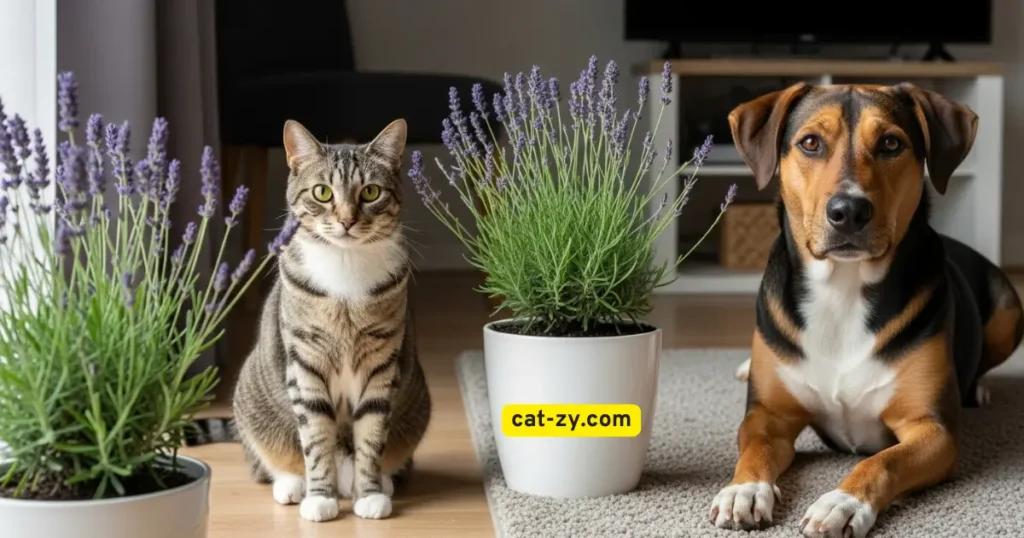
The final surprising fact about “Is lavender safe for cats?” involves comparing feline and canine sensitivity. Both cats and dogs can be sensitive to lavender, but cats are generally more vulnerable due to their inability to metabolize certain compounds effectively. Dogs may tolerate small amounts better than cats, but both pets should have limited exposure to lavender products. This difference stems from cats’ unique liver metabolism, which processes toxins differently from other animals.
Understanding the Relationship Between Cats and Lavender
If you own a cat, you might wonder about the safety of certain items at home. Lavender is one such item that raises questions. It’s known for its calming effects on humans, but its impact on cats is more complicated.
Lavender’s scent might calm humans, but it can stress cats. In small amounts, lavender’s smell is usually okay for cats. But too much lavender oil can make cats feel sick, tired, or even throw up.
If you have lavender products around your cat, make sure the air is fresh. This helps prevent any bad reactions. Like dogs, cats need to be careful around lavender to stay healthy.
FAQ
Is lavender safe for cats to be around?
Lavender can be calming for people, but it’s not the same for cats. Cats might be sensitive to lavender’s compounds. So, be careful when using lavender products near them.
Can cats be allergic to lavender?
Yes, cats can have allergies to lavender. If your cat itches, sneezes, or has trouble breathing after being near lavender, see a vet.
Is lavender essential oil toxic to cats?
Lavender essential oil can harm cats if they eat it or are around too much of it. Keep it away from your cats. Use it in a place with good air flow to reduce risks.
Can I diffuse lavender essential oil around my cat?
Be careful when using lavender essential oil near your cat. Some cats might not react, but others could. Start with a little and watch your cat’s behavior before adding more.
Is the smell of lavender safe for cats?
Lavender’s smell is usually okay for cats in small amounts. But if your cat seems stressed or uncomfortable around it, limit their exposure.
Can lavender be used to calm anxious cats?
Lavender might calm humans, but it’s not proven to work for anxious cats. Talk to a vet before trying lavender or any calming aid for your cat.
What are the symptoms of lavender toxicity in cats?
Cats may vomit, experience diarrhea, feel tired, or have trouble breathing if they ingest lavender or are exposed to excessive lavender oil. If you think your cat has lavender toxicity, get vet help right away.
Is dried lavender safe for cats?
Dried lavender poses similar risks to fresh lavender for cats. While less potent than essential oils, dried lavender still contains toxic compounds like linalool. Cats may experience digestive upset if they ingest dried lavender flowers or leaves, so it’s best to keep dried lavender arrangements away from curious felines.
Is a lavender diffuser safe for cats?
Lavender diffusers can be risky for cats, especially in enclosed spaces. The concentrated essential oils released into the air can cause respiratory irritation and stress in sensitive cats. If you must use a lavender diffuser, ensure excellent ventilation, use it sparingly, and monitor your cat for any signs of discomfort or distress.
Is dry lavender safe for cats?
Dry lavender contains the same potentially harmful compounds as fresh lavender, including linalool and linalyl acetate. While the concentration may be lower than in essential oils, ingestion can still cause gastrointestinal upset in cats. Keep dry lavender potpourri, sachets, and decorative arrangements out of your cat’s reach to prevent accidental consumption.
Is sea lavender safe for cats?
Sea lavender (Limonium) is different from true lavender and is generally considered less toxic to cats. However, it can still cause mild stomach upset if ingested in large quantities. While not as dangerous as regular lavender, it’s still wise to prevent your cat from eating sea lavender plants or arrangements.
Is lavender safe for cats and dogs?
Both cats and dogs can be sensitive to lavender, but cats are generally more vulnerable due to their inability to metabolize certain compounds effectively. Dogs may tolerate small amounts better than cats, but both pets should have limited exposure to lavender products. Always consult your veterinarian before introducing lavender into a multi-pet household.

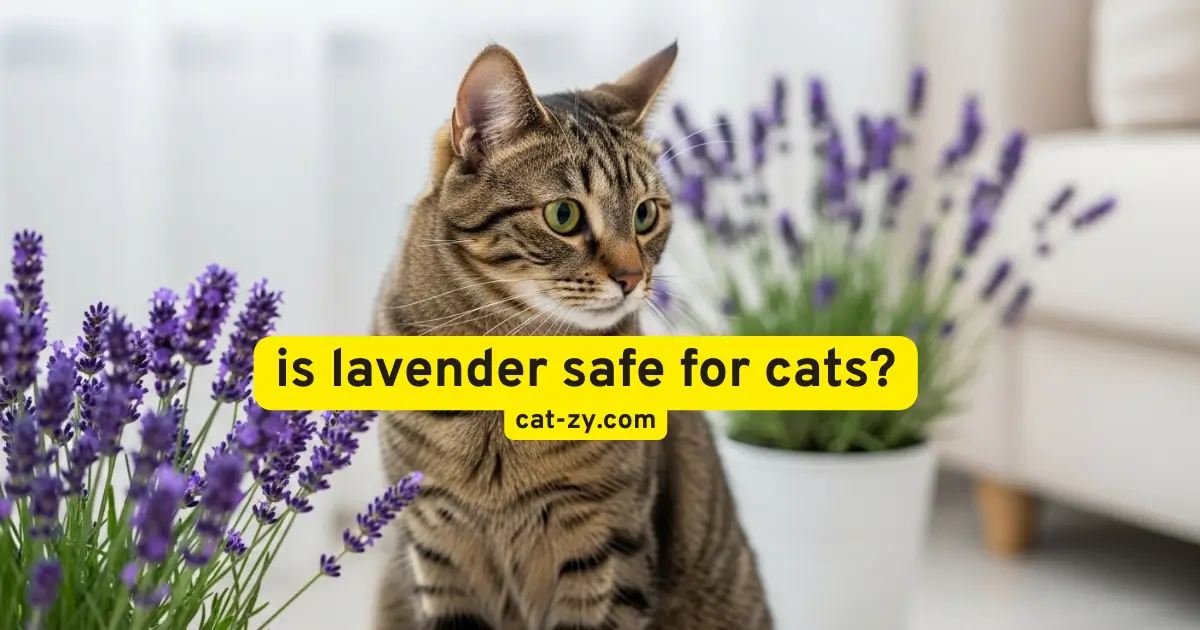
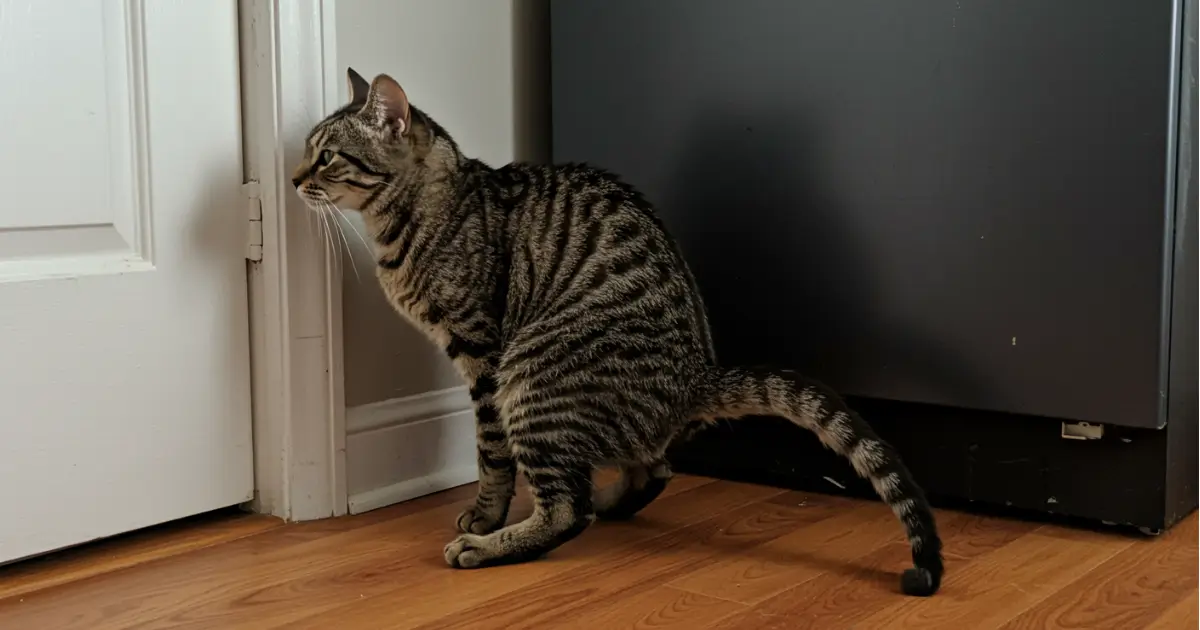

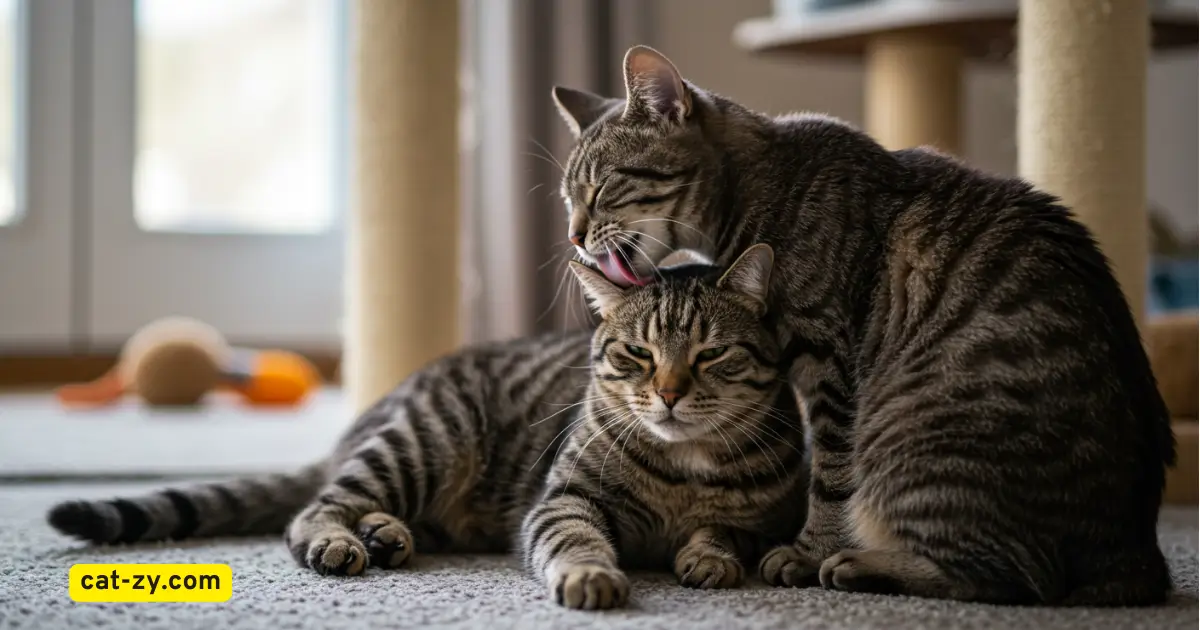
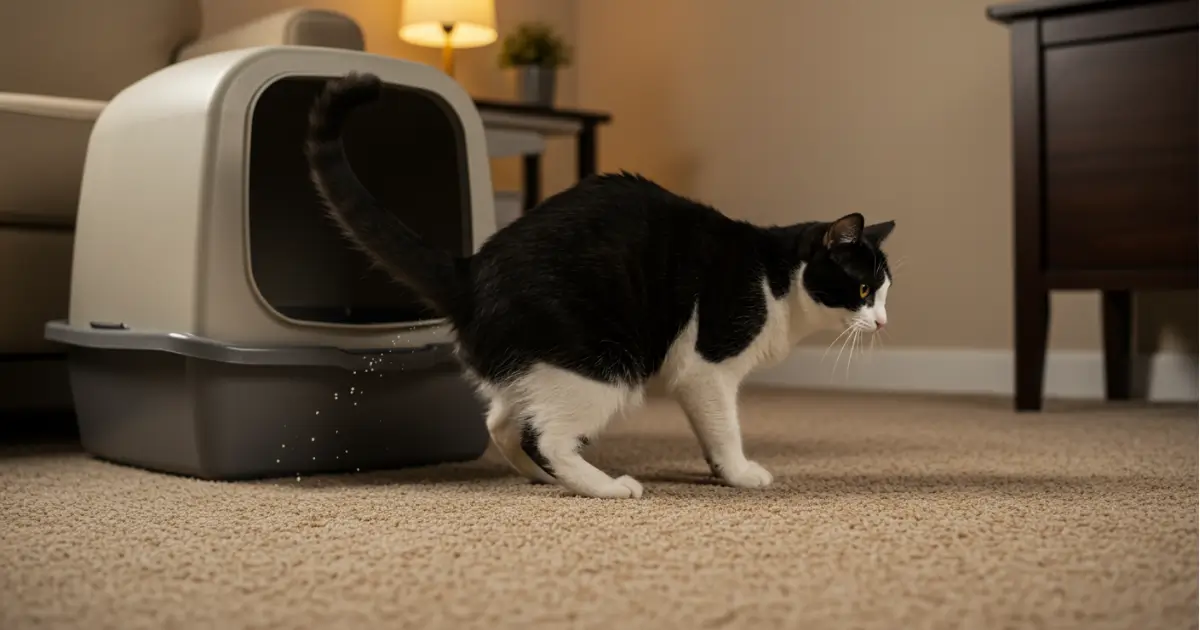

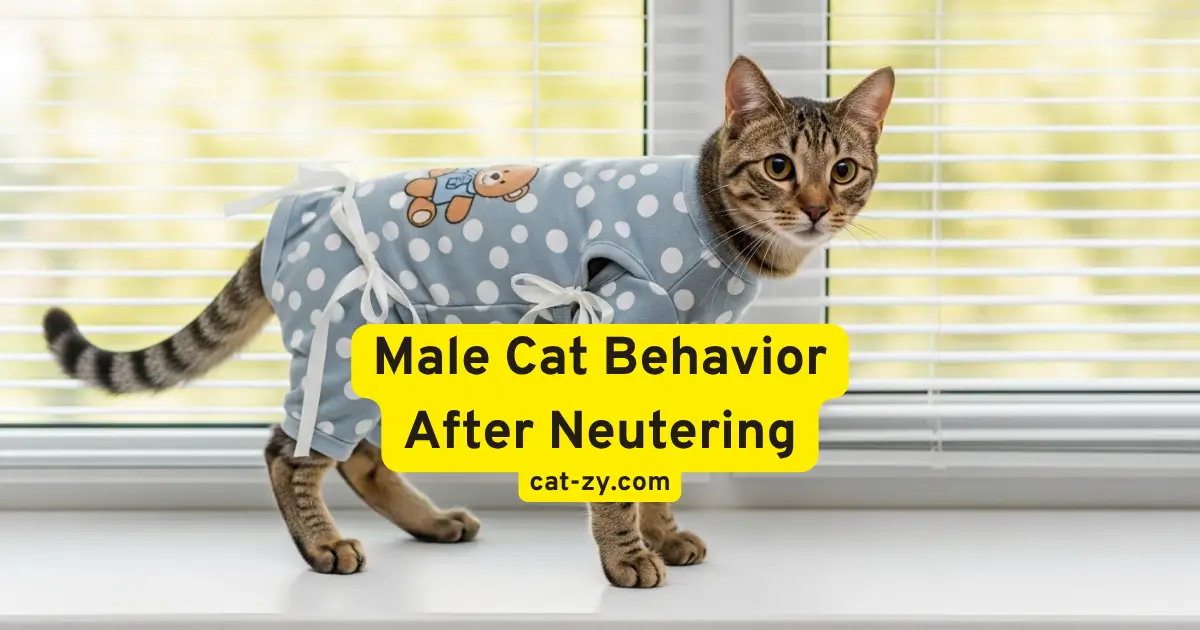
One Comment
Comments are closed.